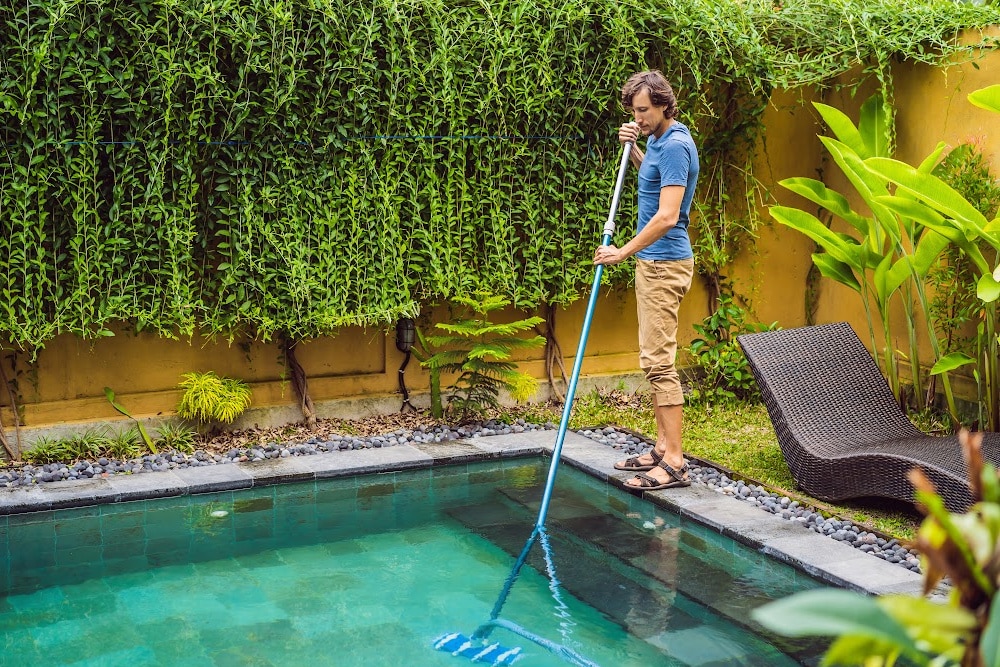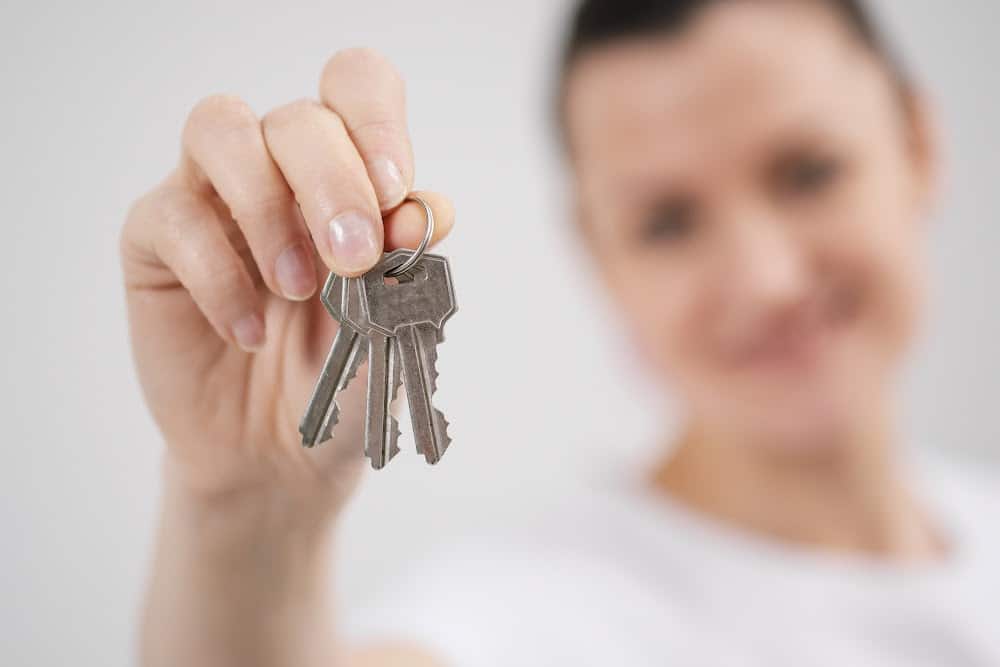A home with a swimming pool is a dream come true for many people. The options for relaxation, play, and keeping fit and healthy are part of the appeal, whereas others feel the risks and upkeep are not worth it. Swimming pools are a necessity for some and a luxury to others. If you’re thinking about building a pool or buying a home that already has one, consider the pros and cons of pool ownership to determine if it aligns with your lifestyle.
Recreation and Exercise
Swimming pools provide an excellent source of recreation and enjoyment. However, unless you have an indoor pool, swimming pools can usually only be enjoyed a few months of the year, depending on the climate where you live.
Pros
Swimming pools are a great way for people of all ages to get exercise. Swimming is a no-impact exercise, making it gentle on the joints and ideal for individuals with arthritis or other joint issues. Both children and adults can enjoy playing and relaxing in the pool, providing a healthy and fun way to stay active. A late-night solo swim or a pool party in the summer is always fun when you have your own pool.
The ability to step outside and dive into your pool whenever you want is a luxury that enhances your home’s recreational value. Moreover, having a pool can be a great way to encourage family bonding and socializing with friends. Pools offer endless entertainment opportunities, whether it’s for family gatherings, parties, or quiet relaxation.
Cons
Swimming pools can be dangerous, especially if you have children who don’t know how to swim. If you choose to have a pool, make sure it has proper safety fencing and locks on the doors leading to the pool area that children cannot open. Remember that you may be held responsible if a friend is injured in your pool.
The risk of accidental drowning or injury is a significant downside to pool ownership, necessitating stringent safety measures. Additionally, pools can attract unwanted guests or wildlife, which can pose additional risks and maintenance challenges. Implementing safety measures such as pool covers, alarms, and fencing is essential but adds to the overall cost and effort of pool ownership.

Cost of Pool Ownership
Swimming pools are not cheap, but quality pools can be an investment. It can be cheaper to buy a home that already has a pool than to have one installed later.
Pros
Having a swimming pool installed is more affordable at the moment than it has been in recent years. Additionally, the cost of a pool could potentially be recouped when you sell your home. A home buyer might be more attracted to your property if it includes a pool, making it a unique selling point in a competitive market. Pools from reputable companies, like Dolphin Fiberglass Pools, are known for their quality and durability, adding long-term value to your home.
A pool can enhance the overall aesthetic of your property, making it more appealing and potentially increasing its marketability. A well-maintained pool can enhance the aesthetic appeal of your home, making your backyard a beautiful oasis. Landscaping around the pool area can further improve the visual appeal, creating a serene environment.
Cons
When you sell your home, you might not make back the amount you spent on the pool. This means if your pool costs you $50,000, you can’t simply add an extra $50,000 to the asking price when you sell your home. The return on investment for pool ownership varies based on market conditions and location. A real estate agent can provide insight into how much a pool might increase your home’s value at the time of sale. However, it’s crucial to recognize that not all potential buyers see a pool as a valuable addition, and some may even view it as a liability.
Additionally, the initial installation cost is just the beginning—ongoing maintenance, repairs, and increased utility bills can add up over time. Unexpected costs, such as repairs or upgrades, can further strain your budget. The seasonal nature of pool use may not justify the year-round expenses and effort required to maintain it.

Maintaining a Pool
A swimming pool needs regular upkeep, which takes time, money, and knowledge.
Pros
If you are buying a home with a pool and don’t know how to maintain it, research before you commit. There are many pool companies that offer maintenance services, allowing you to enjoy your pool without the hassle of upkeep. Professional maintenance can ensure that your pool remains in good condition, safe, and clean. This option is especially useful for those who lead busy lives or lack the expertise to maintain a pool themselves.
Investing in professional maintenance can prolong the life of your pool and its equipment, potentially saving you money on costly repairs in the long run. Regular maintenance is essential to keep the pool clean and safe. This includes balancing chemicals, cleaning, and repairing equipment.
Cons
An unmaintained pool can be dangerous. Without proper chemicals, swimmers could get ill from algae or other bacteria forming in the pool. A dirty pool is also an eyesore in your garden. Maintenance involves regular cleaning, chemical balancing, and occasional repairs, which can become costly and time-consuming.
If not properly maintained, a pool can quickly turn from a valuable asset into a health hazard and a financial burden. Additionally, dealing with seasonal changes, such as winterizing your pool, requires specific knowledge and effort, adding to the complexity of pool ownership. The time and effort required for maintenance can be significant, particularly for larger pools or those with complex features.

Is Pool Ownership Right for You?
Deciding whether pool ownership is right for you involves weighing the pros and cons carefully. Consider your lifestyle, budget, and willingness to invest time and money into maintaining a pool. If you value the health benefits, entertainment, and aesthetic appeal that a pool offers and are prepared for the associated costs and responsibilities, owning a pool could be a rewarding experience. Swimming is an excellent full-body workout that is easy on the joints and provides cardiovascular benefits. Owning a pool encourages regular exercise, which can contribute to overall well-being and a healthier lifestyle.
If the safety risks, high costs, and maintenance demands outweigh the benefits for you, it might be better to enjoy swimming at a local pool or recreation center. Pools pose significant safety risks, especially for children and pets. Implementing safety measures such as pool covers, alarms, and fencing is essential but adds to the overall cost and effort of pool ownership. Consider your long-term plans—if you anticipate moving within a few years, the investment in a pool might not pay off.

Pool ownership is a significant commitment that comes with both rewards and challenges. By understanding the pros and cons of pool ownership, you can make an informed decision that aligns with your lifestyle and financial situation. Whether you choose to install a new pool or buy a home with an existing one, the key is to ensure it enhances your life without becoming a burden.
Carefully evaluate your priorities, resources, and long-term goals to determine if a swimming pool is the right addition to your home. Regular maintenance is essential to keep the pool clean and safe. This includes balancing chemicals, cleaning, and repairing equipment. Implementing safety measures such as pool covers, alarms, and fencing is essential but adds to the overall cost and effort of pool ownership. The return on investment for pool ownership varies based on market conditions and location. A real estate agent can provide insight into how much a pool might increase your home’s value at the time of sale.





